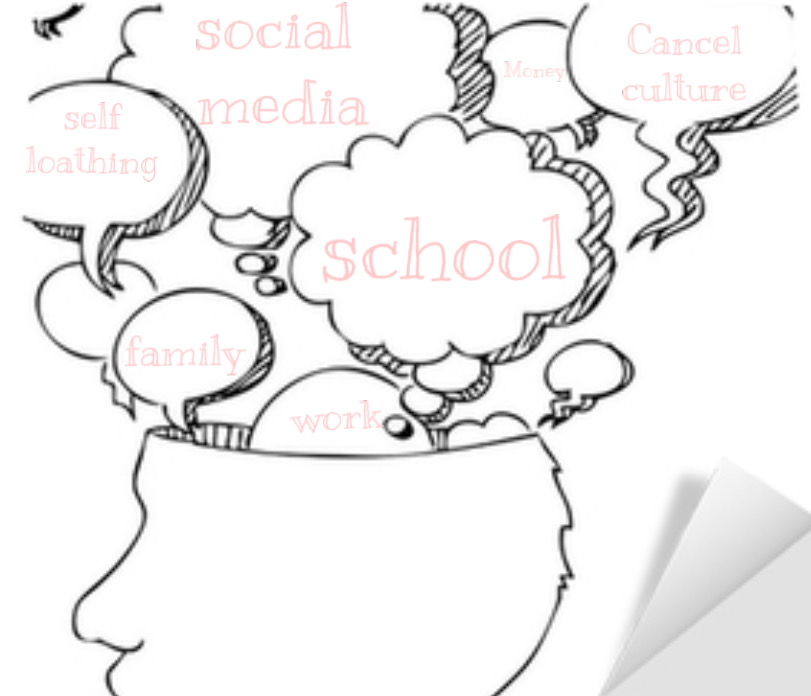School and Social Media Take a Toll on Students’ Mental Health
Many factors impact students’ well-being, including the pressures associated with both social media and school.
November 4, 2019
In this modern day brimming with social media, never ending expectations and the fear of being cancelled, teenagers are pushed to the limit to fulfill the status quo. This disastrous combination causes teenagers’ mental health to suffer.
According to the Center For Disease Control and Protection, approximately a combined 17.7 percent of kids aged three to 17 suffer from diagnosed behavior problems, anxiety and depression. That is three to four kids out of a classroom of 20.
This is a real statistic, not a guess or an estimate, so why do thousands of adults not take it seriously? I have personally witnessed multiple teenagers’ mental health decline because their parents or guardians refuse to acknowledge their problems.
Kids start to skip school, their relationships suffer and they may even feel suicidal because of their mental illnesses. No good parent would want this for their child.
School is also one of the biggest factors in a teenagers’ mental health; I conducted a poll of 30 high school students and 100 percent of the respondents agreed that school has caused some sort of mental health issue for them.
While students may suffer from only minor social anxiety, they could also experience depression so severe that they are suicidal. A major problem in school is the schedule and requirements you are forced into, and this could be anything from expecting to get good grades or being required to take history classes when you want a career in science.
While teenagers need structure, we also need the freedom to choose what we want to do with our lives, and often we feel that school squishes us into a box rather than allowing us to explore who we are.
This leads us to feel that we don’t have control of our own lives, and as a way to cope teens will turn to alcohol and drugs. Thousands of teens also develop eating disorders because they feel that what they eat is the only thing they can control.
As a solution, I would suggest that schools require freshmen and sophomores to take all of their core classes, but once they become upperclassmen, they can choose a path to follow with more classes in their desired career fields.
The school should also put forth more of an effort to confirm that their student population is well-fed or at least eating one healthy meal a day as the school cannot control students’ home lives.
School also creates a hub for bullying to flourish, but unlike traditional bullying most modern bullying happens on social media in the form of cancel culture.
Cancel culture is the idea that if an individual does something wrong or offends a person or group of people, they should be “cancelled.” This means they should be shunned or no longer acknowledged at all.
This culture thrives in school because word spreads like wildfire pinging from phone to phone from person to person in a fury of screenshots and comments.
Clearly, this can push people to suicide because they can try their hardest to repent for their mistakes but are forced into isolation anyway. It is hard to fix this issue within school because the school cannot control what is put on social media.
Overall, school is a component in the diminished mental health of teenagers, but the bigger problem is social media. It has become so easy to see what others are doing that everyone feels obligated to be the same and keep up with the trends.
All teenagers could benefit from a day off of social media. Take one. Take a day to be completely alive. A day without a phone is not the end of the world, and it gives people the chance to actually connect with those around them and stop worrying about how others see them.




